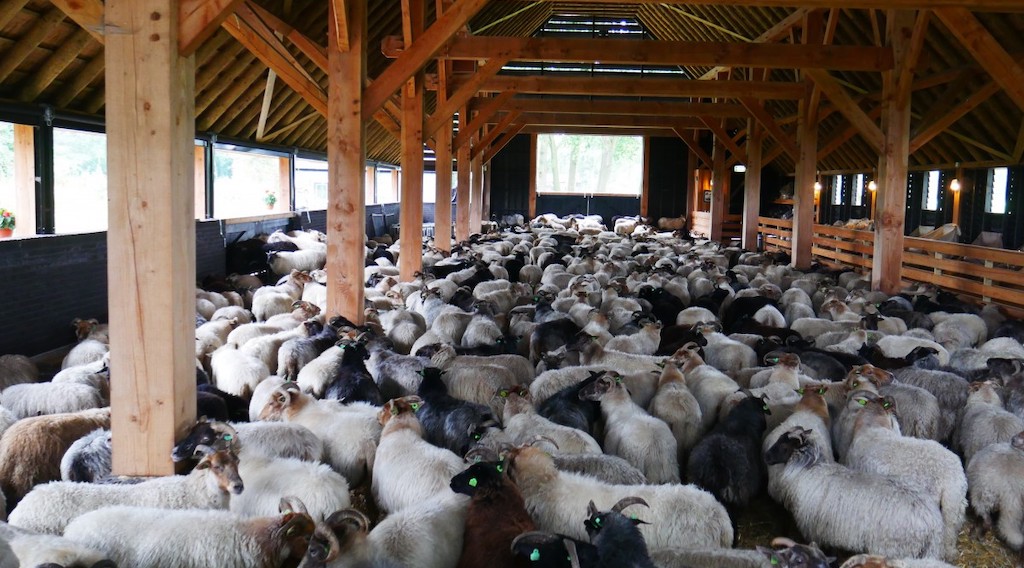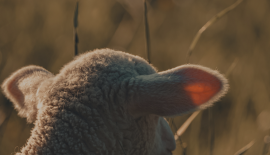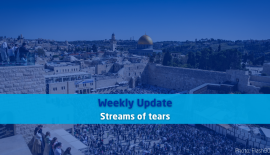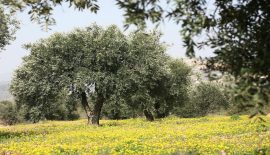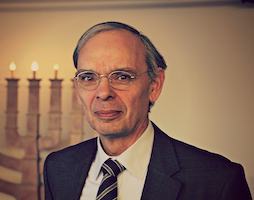Prisoners will be set free (Jeremiah 31 – part 4)
Jeremiah tells about the beautiful promise that the Lord will gather in His flock as a shepherd and that God will bring Israel home. Or to say it with those beautiful words from Joost van den Vondel’s* rhymed version of Psalm 23: “He brings them to the sheep fold again!”
But then suddenly (Jeremiah 31:11) it says something unexpected: there is a power stronger than Israel’s sheep. And that power rules during the exile. Of course, you can think of Babel, of the powerful Persia of antiquity, of Elam, where the ten tribes were last seen. You can think of the Roman Empire, or in modern history of the large former Soviet empire. The Bible paints a picture of those empires as dragons and multi-headed monsters, empires that oppressed Israel’s children and prevented them to return to their own Land. They gathered the Jewish people, only as false shepherds in ghettos and led them away to be slaughtered.
Prince of darkness
But there is talk of a much bigger power in the background. Isaiah 49, that big chapter about Israel’s recovery, refers to it as well. In verse 24 the prophet asks himself whether “Can plunder be taken from warriors, or lawful captives be rescued from the fierce?”
I believe that we should not imagine a human figure when thinking of this mighty power, but of the prince of darkness who told Jesus that he has power over all the kingdoms on earth and that he could give that power to whom he will. It is strange to hear that, but that is what it says. Satan became the prince of this world and that authority is based on sin. That is why Isaiah speaks of a power within his rights.
But, says the prophet, the Lord will fight for His people and set it free. Jeremiah knows this belief as well. In a prophetic promise it is said that God has delivered Jacob and redeemed them from the hand stronger than they (Jeremiah 31:11).
The prisoners
In His sermon in the synagogue of Capernaum (Luke 4) Jesus quotes the promise from Isaiah 61:3 of recovery of sight for the blind and to proclaim freedom for the prisoners. And He says this after that moment in which the devil told about his authority. I often wondered who these prisoners might be. Until I understood that Jesus with His sacrifice has also opened the doors of the exile. The prisoners about whom Jesus spoke are the lost sheep, the people of Israel. Like God fought for Israel at the first exodus and the gods of Egypt were judged in the night of Passover and thus the slavery came to an end, Jesus is the Paschal Lamb of a new exodus that belongs to the end of the history of salvation. He will gather in the people of Israel wherever they are on this world. He is the Good Shepherd. And therefore, He gave His life as a ransom for many.
*) The 17th century Dutch poet, writer and playwright.
